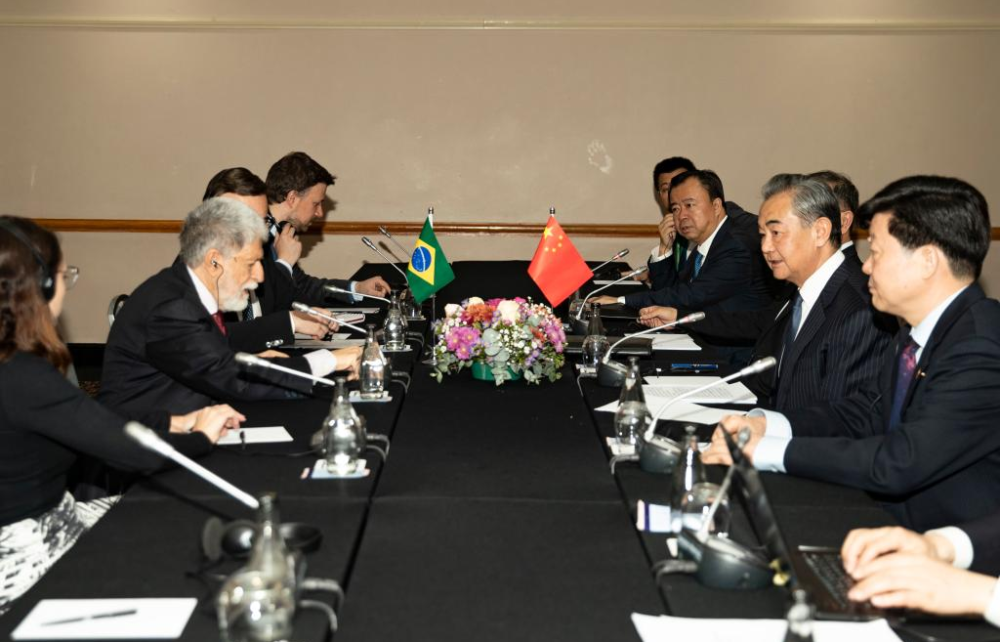China and Brazil pledged to push forward with their “important” strategic partnership, namely by boosting economic and scientific ties.
Wang Yi, director of the Office of the Communist Party of China Central Commission for Foreign Affairs, met with Celso Luiz Nunes Amorim, chief advisor of the Presidency of Brazil, at the BRICS meetings in South Africa.
China and Brazil, the biggest developing countries in the Eastern and Western hemispheres, share common strategic interests, Wang said.
“Far-reaching impacts” on China-Brazil strategic partnership from Lula visit
China is willing to work with Brazil to deepen strategic mutual trust, expand strategic cooperation, and strengthen the alignment between the Belt and Road Initiative and Brazil’s development strategies, such as reindustrialization and the growth acceleration program, Wang said. China also stands ready to work with Brazil to further explore common interests and create growth drivers, he added.
The Chinese minister also said China is willing to strengthen communication and coordination with Brazil, jointly promote BRICS cooperation to reflect the new reality and respond to the voices of all parties, keep pace with the times, make new progress, better safeguard the common interests of emerging markets and developing countries, and promote the multi-polarization and democracy in international relations.
For his part, Amorim said China is an important strategic partner of Brazil, and all-round cooperation between the two countries has yielded fruitful results.
Brazil is willing to work with China to implement the consensus of leaders of the two countries, maintain close strategic communication and coordination, deepen pragmatic cooperation in aviation, automobile, advanced technology, green economy, climate change and other fields, and create multiplier effects, he said.
Brazil is also willing to strengthen cooperation with China in multilateral frameworks such as BRICS, jointly uphold multilateralism and safeguard world peace, Amorim added.
The BRICS – an acronym for five emerging economies, Brazil, Russia, India, China and South Africa – has become the most representative platform for South-South cooperation and is facing a historical opportunity for development, Wang said.



